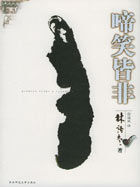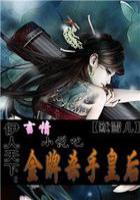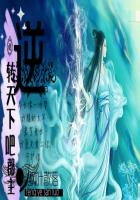With the dismemberment of the short-lived Empire the danger for Eastern Europe was by no means at an end. The independent hordes were scarcely less formidable than the Empire itself. A grandson of Genghis formed on the Russian frontier a new State, commonly known as Kiptchak, or the Golden Horde, and built a capital called Serai, on one of the arms of the Lower Volga. This capital, which has since so completely disappeared that there is some doubt as to its site, is described by Ibn Batuta, who visited it in the fifteenth century, as a very great, populous, and beautiful city, possessing many mosques, fine market-places, and broad streets, in which were to be seen merchants from Babylon, Egypt, Syria, and other countries. Here lived the Khans of the Golden Horde, who kept Russia in subjection for two centuries.
In conquering Russia the Mongols had no wish to possess themselves of the soil, or to take into their own hands the local administration. What they wanted was not land, of which they had enough and to spare, but movable property which they might enjoy without giving up their pastoral, nomadic life. They applied, therefore, to Russia the same method of extracting supplies as they had used in other countries. As soon as their authority had been formally acknowledged they sent officials into the country to number the inhabitants and to collect an amount of tribute proportionate to the population. This was a severe burden for the people, not only on account of the sum demanded, but also on account of the manner in which it was raised. The exactions and cruelty of the tax-gatherers led to local insurrections, and the insurrections were of course always severely punished. But there was never any general military occupation of the country or any wholesale confiscations of land, and the existing political organisation was left undisturbed. The modern method of dealing with annexed provinces was totally unknown to the Mongols. The Khans never thought of attempting to denationalise their Russian subjects. They demanded simply an oath of allegiance from the Princesand a certain sum of tribute from the people. The vanquished were allowed to retain their land, their religion, their language, their courts of justice, and all their other institutions.
During the Mongol domination Russia was composed of a large number of independent principalities.
The nature of the Mongol domination is well illustrated by the policy which the conquerors adopted towards the Russian Church.
For more than half a century after the conquest the religion of the Tartars was a mixture of Buddhism and Paganism, with traces of Sabaeism or fire-worship. During this period Christianity was more than simply tolerated. The Grand Khan Kuyuk caused a Christian chapel to be erected near his domicile, and one of his successors, Khubilai, was in the habit of publicly taking part in the Easter festivals. In 1261 the Khan of the Golden Horde allowed the Russians to found a bishopric in his capital, and several members of his family adopted Christianity. One of them even founded a monastery, and became a saint of the Russian Church! The Orthodox clergy were exempted from the poll-tax, and in the charters granted to them it was expressly declared that if any one committed blasphemy against the faith of the Russians he should be put to death. Some time afterwards the Golden Horde was converted to Islam, but the Khans did not on that account change their policy.
They continued to favour the clergy, and their protection was long remembered. Many generations later, when the property of the Church was threatened by the autocratic power, refractory ecclesiastics contrasted the policy of the Orthodox Sovereign with that of the "godless Tartars," much to the advantage of the latter.
At first there was and could be very little mutual confidence between the conquerors and the conquered. The Princes anxiously looked for an opportunity of throwing off the galling yoke, and the people chafed under the exactions and cruelty of the tribute-
collectors, whilst the Khans took precautions to prevent insurrection, and threatened to devastate the country if their authority was not respected. But in the course of time this mutual distrust and hostility greatly lessened. When the Princes found by experience that all attempts at resistance were fruitless, they became reconciled to their new position, and instead of seeking to throw off the Khan's authority, they tried to gain his favour, in the hope of forwarding their personal interests. For this purpose they paid frequent visits to the Tartar Suzerain, made rich presents to his wives and courtiers, received from him charters confirming their authority, and sometimes even married members of his family. Some of them used the favour thus acquired for extending their possessions at the expense of neighbouring Princes of their own race, and did not hesitate to call in Tartar hordes to their assistance. The Khans, in their turn, placed greater confidence in their vassals, entrusted them with the task of collecting the tribute, recalled their own officials who were a constant eyesore to the people, and abstained from all interference in the internal affairs of the principalities so long as the tribute was regularly paid. The Princes acted, in short, as the Khan's lieutenants, and became to a certain extent Tartarised.















